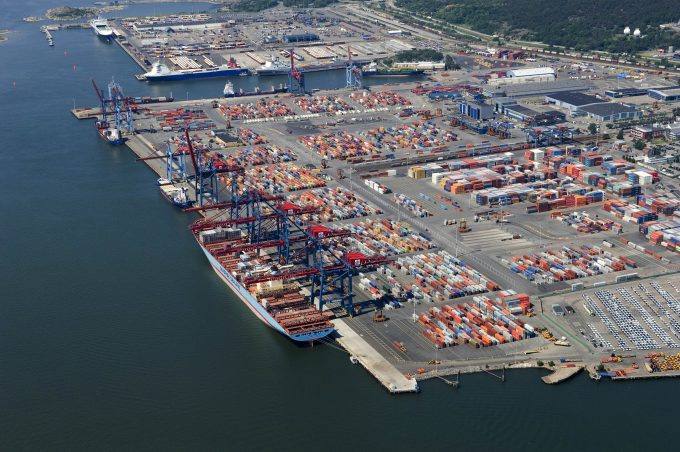Zemba gets things moving, as Hapag-Lloyd signs up for 'greener' shipping
Proving to be more than just idle talk, the Zero-Emission Maritime Buyers’ Alliance (Zemba) has ...

Orient Overseas Container Line (OOCL) has suspended its services until the industrial action at APM Terminals’ Gothenburg container facility is resolved.
A spokesperson for the carrier told The Loadstar: “In response to the lock-out, OOCL has suspended all bookings to and from Gothenburg until further notice.
“We have been working with all concerned parties on options to address the problem and to meet the requirements of our customers.”
The carrier’s decision echoes action by Hapag-Lloyd, which announced in March it would redirect one of two Gothenburg feeder services to Varburg because of the ongoing row, and last month suspended its second feeder service in light of the lockout, although a spokesperson told The Loadstar this was now back in service.
As we reported yesterday, the dispute – concerning dockers’ requests at the terminal to be party to a collective bargaining agreement – could last for up to another year.
Responding to blockades by the Swedish Dockworkers Union Section 4, APM Terminals Gothenburg first imposed partial lockouts mid-May, which are now set to last until the end of June.
Gothenburg is Sweden’s largest container terminal, handling over half of the country’s volumes. Last year, it processed 750,000 teu, while the second largest port, Helsingborg, handled just 200,000 teu.
With lock-outs in place, a port source told The Loadstar Gothenburg was operating at 30% capacity.
“There’s a 70% overflow, around 525,000 teu, from the port – almost double the combined annual volumes of the second and third largest [Norrkopping 100,000 teu] ports,” said the source.
“Put quite simply, the country does not have the facilities to handle these volumes and it is causing serious congestion in the Swedish supply chain.”
On 23 May, minister for employment and integration Ylva Johansson announced a government review of legislation covering industrial disputes. In a statement, the minister said the Swedish model was based on mutual trust between employers and unions, with all parties assuming responsibility for ensuring the model works as intended.
“The sustained industrial action at the port of Gothenburg is an example of a situation where the Swedish model is not functioning adequately,” the statement continued, “as it would appear that the parties on the labour market are unable to resolve the issue of which organisation should sign a collective agreement.”
Ms Johansson said while she did not intend taking sides in the conflict, the Swedish model must work at the port.
“There needs to be order and stability on the Swedish labour market, and this situation is serious and represents a threat not only to jobs but also to the Swedish economy,” she added.
Comment on this article